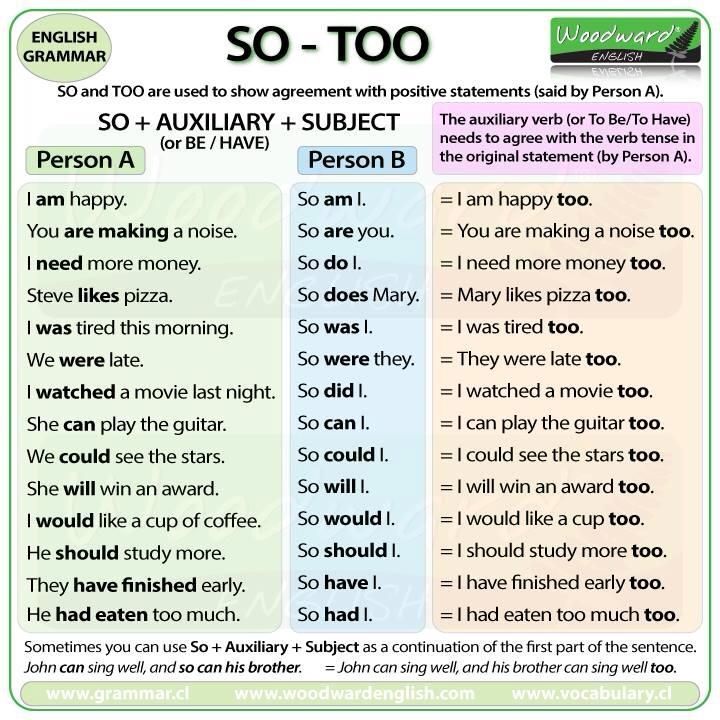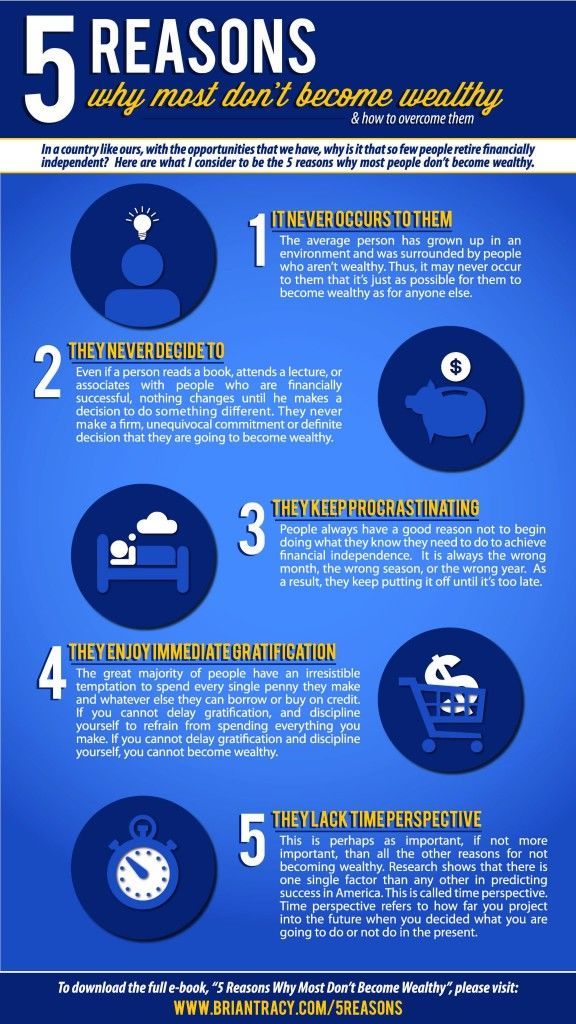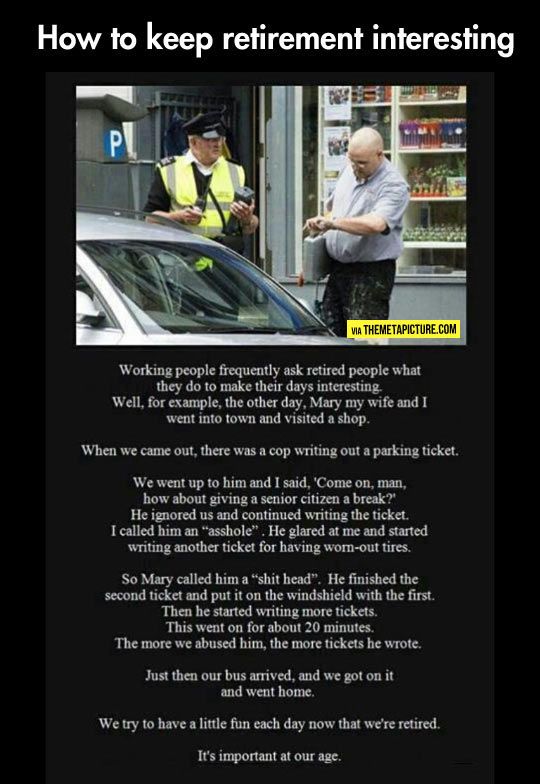Today, Pope Benedict XVI told the world that he would resign. No one saw this coming, really, because no one resigns from the position. The last time a pope resigned was in 1415, and there have been only a handful of other cases of papal abdication:
308: Pope Marcellinus stepped down from the position shortly before dying. No one is sure why.
366: Pope Liberius also stepped down without a clear reason.
1009: Pope John XVIII ended his time as pope and retired to a monastery. Many accounts suggest that John was beholden to the Crescentii family, a powerful Roman clan.
1045
: Pope Benedict IX was the first pope to very clearly step down. (Earlier accounts are fuzzy, historically.) This Benedict was apparently quite a handful. His resignation was a business deal of sorts: he sold his seat for a large sum of money to the Archpriest John Gratain. This transaction was so scandalous that the king intervened, reinstating Benedict as pope. Benedict IX was then deposed again, reinstated once more, and finally driven away to make room for Damasus II.
1294: Pope Celestine V is probably the most famous of abdicators. After just five months in the seat, Celestine wrote a decree that allowed popes to step down, before doing so himself. The site Catholic Online puts it this way:
He was Pope only about five months. Because he was so humble and simple, everyone took advantage of him. He could not say “no” to anyone, and soon matters were in great confusion. At last, the Saint decided that he had better give up his position as Pope. He did so and then threw himself at the feet of the Cardinals for not having been capable of governing the Church.
About.com puts it this way:
Celestine V inherited a troubled papacy which was largely under the thumb of Charles II of Sicily.
Through his reign Celestine was unable to do much of anything without approval and support from Charles – something Celestine himself recognized. This was probably the reason why he abdicated his position after only 5 months.
1415: Pope Gregory XII resigned in an attempt to end the Western Schism, a forty year period during which three different people—Roman Pope Gregory XII, Avignon Antipope Benedict XIII, and Pisan Antipope John XXIII—claimed to be the head of the Catholic Church.
2013: Which brings us to today. Here’s the full resignation from Benedict XVI.
Dear Brothers,
I have convoked you to this Consistory, not only for the three canonizations, but also to communicate to you a decision of great importance for the life of the Church. After having repeatedly examined my conscience before God, I have come to the certainty that my strengths, due to an advanced age, are no longer suited to an adequate exercise of the Petrine ministry.
I am well aware that this ministry, due to its essential spiritual nature, must be carried out not only with words and deeds, but no less with prayer and suffering. However, in today’s world, subject to so many rapid changes and shaken by questions of deep relevance for the life of faith, in order to govern the bark of Saint Peter and proclaim the Gospel, both strength of mind and body are necessary, strength which in the last few months, has deteriorated in me to the extent that I have had to recognize my incapacity to adequately fulfill the ministry entrusted to me. For this reason, and well aware of the seriousness of this act, with full freedom I declare that I renounce the ministry of Bishop of Rome, Successor of Saint Peter, entrusted to me by the Cardinals on 19 April 2005, in such a way, that as from 28 February 2013, at 20:00 hours, the See of Rome, the See of Saint Peter, will be vacant and a Conclave to elect the new Supreme Pontiff will have to be convoked by those whose competence it is.

Dear Brothers, I thank you most sincerely for all the love and work with which you have supported me in my ministry and I ask pardon for all my defects. And now, let us entrust the Holy Church to the care of Our Supreme Pastor, Our Lord Jesus Christ, and implore his holy Mother Mary, so that she may assist the Cardinal Fathers with her maternal solicitude, in electing a new Supreme Pontiff. With regard to myself, I wish to also devotedly serve the Holy Church of God in the future through a life dedicated to prayer.
BENEDICTUS PP XVI
People will surely wonder exactly why Benedict stepped down, since it’s such a rare occurrence. The New York Times points out that during his predecessor’s tenure, the pope (then Cardinal Ratzinger) indicated that a pope who “sees that he absolutely cannot do anymore” would resign. But no one knows yet what exactly pushed him to make this decision.
More from Smithsonian.com:
The Pope’s Tweets Are Official Church Doctrine
Does Rugby Predict Pope’s Doom?
[×] CLOSE
VIDEO: How to Become Pope
Recommended Videos
In the history of the church, only a few popes have resigned for various reasons, and a few have been deposed for various reasons. St. Pontian was the first pope to resign from office. He had been elected as the successor of St. Peter July 21, 230. During the persecution waged by Emperor Maximinus Thrax, St. Pontian was exiled to Sardinia and condemned to work in the salt mines, which meant certain death. For the good of the church, he resigned as pope Sept. 28, 235, to enable the election of a new pope, St. Anterus. St. Pontian was martyred in 236, either from ill treatment in general or from a mortal beating.
On the other hand, St. Silverius, who was consecrated pope June 1, 536, was the first pope forcibly deposed. In March 537, the wicked Byzantine Empress Theodora had the pope kidnaped and removed from Rome for not approving her nominations of heretics for bishops. He was exiled to the island of Palmaria until his death Nov. 11, 537. Since St. Silverius had been declared “deposed,” the clergy and people of Rome elected Pope Vigilius, who was consecrated March 29, 537.
In March 537, the wicked Byzantine Empress Theodora had the pope kidnaped and removed from Rome for not approving her nominations of heretics for bishops. He was exiled to the island of Palmaria until his death Nov. 11, 537. Since St. Silverius had been declared “deposed,” the clergy and people of Rome elected Pope Vigilius, who was consecrated March 29, 537.
A similar situation befell St. Martin I, who was consecrated pope in July 649. Like St. Silverius, St. Martin opposed the Byzantine emperor’s attempts to promote the heresy of monothelitism and to appoint heretical bishops. The emperor had St. Martin kidnaped, taken to Constantinople, deposed, condemned and exiled. He died in the Crimea Sept. 16, 656, of ill-treatment and neglect. He was the last pope to die as a martyr.
Pope Benedict IX holds the honor notoriety for holding the papacy three separate times. He was the nephew of both Pope Benedict VIII (1012-24) and Pope John XIX (1024-32), and a member of a very powerful family. Upon the death of Pope John XIX, Benedict’s father, Alberic, bribed, manipulated and threatened the Roman clergy to elect his son although he was too young, inexperienced and without any ecclesiastical training. Most historians sadly cite Benedict IX’s papacy as the lowest point in the history of all of the popes. After various scandals, the clergy and people of Rome deposed and exiled him, and elected a new pope, Sylvester III, who was consecrated Jan. 20, 1045. However, Benedict and his forces regrouped and deposed Sylvester III Feb. 10, 1045; Benedict was officially reinstated as pope April 10, 1045. However, he resigned 21 days later on May 1, 1045, to pursue promises of money and other favors, and Pope Gregory VI assumed the papacy May 5, 1045. However, something went awry, and Benedict reclaimed the papacy (along with Sylvester III).
Upon the death of Pope John XIX, Benedict’s father, Alberic, bribed, manipulated and threatened the Roman clergy to elect his son although he was too young, inexperienced and without any ecclesiastical training. Most historians sadly cite Benedict IX’s papacy as the lowest point in the history of all of the popes. After various scandals, the clergy and people of Rome deposed and exiled him, and elected a new pope, Sylvester III, who was consecrated Jan. 20, 1045. However, Benedict and his forces regrouped and deposed Sylvester III Feb. 10, 1045; Benedict was officially reinstated as pope April 10, 1045. However, he resigned 21 days later on May 1, 1045, to pursue promises of money and other favors, and Pope Gregory VI assumed the papacy May 5, 1045. However, something went awry, and Benedict reclaimed the papacy (along with Sylvester III).
With the help of King Henry III of Germany, a genuine reformer and defender of the faith, the Council of Sutri convened Dec. 20, 1046, and deposed Benedict IX, Sylvester III, and Gregory VI (these latter two dying in exile). On Dec. 23, the clergy and people of Rome elected Pope Clement II, who was consecrated Dec. 25. Clement II died Oct. 9, 1047, and Benedict IX installed himself as pope Nov. 8,1047, technically his third pontificate. King Henry III intervened again, removing Benedict IX from power forever July 17, 1048. That same day, Pope Damasus II was consecrated pope. As for Benedict IX, the three-time pope, he retired to the Abbey of Grottaferrata, where he repented of his sins, officially resigned as pope, and spent the rest of his life doing penance. Even though Benedict presents an “interesting” picture of the papacy, he never taught anything contrary to the faith; moreover, his frailty prompted the next popes to introduce many reforms governing simony and clerical discipline. Also, in 1059, Pope Nicholas II promulgated that the cardinals alone serve as the papal electors.
On Dec. 23, the clergy and people of Rome elected Pope Clement II, who was consecrated Dec. 25. Clement II died Oct. 9, 1047, and Benedict IX installed himself as pope Nov. 8,1047, technically his third pontificate. King Henry III intervened again, removing Benedict IX from power forever July 17, 1048. That same day, Pope Damasus II was consecrated pope. As for Benedict IX, the three-time pope, he retired to the Abbey of Grottaferrata, where he repented of his sins, officially resigned as pope, and spent the rest of his life doing penance. Even though Benedict presents an “interesting” picture of the papacy, he never taught anything contrary to the faith; moreover, his frailty prompted the next popes to introduce many reforms governing simony and clerical discipline. Also, in 1059, Pope Nicholas II promulgated that the cardinals alone serve as the papal electors.
Another pope to resign was St. Celestine V, who was elected pope July 5, 1294 and consecrated Aug. 29. He was a Benedictine monk who enjoyed the life of a hermit and was renown for his spirituality. To break a deadlocked College of Cardinals, he was elected as pope even though he was 84 years old. Immediately, he became prey to scheming cardinals and nobility alike. He resigned Dec. 13, 1294, and returned to his monastery. Pope Boniface VIII, his successor and who probably remembered the intrigue of Benedict IX, had Celestine confined in a castle to prevent any attempt to reinstate him. He died May 19, 1295 (and was canonized by Pope Clement V on March 5, 1313).
To break a deadlocked College of Cardinals, he was elected as pope even though he was 84 years old. Immediately, he became prey to scheming cardinals and nobility alike. He resigned Dec. 13, 1294, and returned to his monastery. Pope Boniface VIII, his successor and who probably remembered the intrigue of Benedict IX, had Celestine confined in a castle to prevent any attempt to reinstate him. He died May 19, 1295 (and was canonized by Pope Clement V on March 5, 1313).
Finally, Pope Gregory XII (1406-15) was elected as the legitimate pope at a time when there were two anti-popes: The Avignon Pope, Benedict XIII, who was supported by the French king; and the Pisa Pope, John XXIII, who was supported by conciliarists of the renegade Council of Pisa. (Please note that neither of these two latter mentioned popes were really popes.) Finally, at the Council of Constance (an official council), in order to heal the church, Pope Gregory XII officially resigned, Benedict XIII resigned, and John XXIII was deposed; Pope Martin V (1417-31) was then elected as the legitimate successor of St. Peter, following Gregory XII.
Peter, following Gregory XII.
Therefore, we find some colorful history to the papacy, concerning resignations and depositions, and even human frailty. In all, Christ has preserved His church and the papacy. On Ash Wednesday, Pope Benedict, with great humility, captured this point well at his public audience: “I have decided to renounce the ministry that the Lord has entrusted to me on April 19, 2005. I did this in full freedom for the good of the church, after having prayed at length and having examined my conscience before God, well aware of the seriousness of the act, but equally conscious of no longer being able to carry out the Petrine ministry with the strength that it requires. I am supported and enlightened by the certainty that the church is Christ, who will never allow it to lack His leadership and care.” Christ indeed will not abandon His body, the church.
adv.rbc.ru
adv. rbc.ru
rbc.ru
adv.rbc.ru
Hide banners
What is your location ?
YesChoose other
Categories
Euro exchange rate on December 20
EUR CB: 70.62 (+1.84) Investments, 16:02
Dollar exchange rate on December 20
USD Central Bank: 66.35 (+1.74) Investments, 16:02
Putin ruled out "absorption of anyone" by Russia Politics, 21:08
Ovechkin reacted to the victory of "favorite player" Messi at the World Cup Sports, 20:57
Putin discussed joint exercises and defense space with Lukashenka Politics, 20:57
adv. rbc.ru
rbc.ru
adv.rbc.ru
Squishmallow is the main soft toy of the year. What is the phenomenon of its popularity Life, 20:53
Putin and Lukashenko summed up the meeting in Minsk. Video Politics, 20:52
Putin appointed prosecutors of four regions Society, 20:45
Medvedev accused British politicians of hypocrisy Politics, 20:37
A gift that you want to keep for yourself
Gift certificate for an RBC Pro subscription with a discount of up to 45%
Gift a subscription
French players who did not score a penalty were subjected to racist insults Sport, 20:36
iFly canceled flights to Egypt again Business, 20:36
Elon Musk blamed the US Fed for the Tesla stock crash in 2022 Investments, 20:35
How much can you save with electronic document management RBC and Trivio, 20:23
The court sentenced the directors of the defense enterprise "Temp" to suspended sentences Society, 20:14
Konstantin Mogilevsky was appointed Deputy Head of the Ministry of Education and Science Society, 20:08
Apartment in the old district of Moscow: why this investment is always relevant RBC and Amaranth, 20:00
adv. rbc.ru
rbc.ru
adv.rbc.ru
adv.rbc.ru nine0003
Pope Francis, who is 86 years old, is ready to retire in case of illness if this interferes with his duties
Pope Francis (Photo: Antonio Masiello / Getty Images)
Pope Francis signed a renunciation in advance in case he was ill and would not be able to serve. The pontiff stated this in an interview with the Spanish newspaper ABC. nine0003
According to the Pope, he handed the corresponding letter to Tarcisius Bertone, who served as Secretary of State of the Vatican from 2006-2013.
On December 17, Francis turned 86 years old.
adv.rbc.ru
adv.rbc.ru
The previous Pope Benedict XVI left the Holy See in February 2013. He explained his renunciation by old age, leaving no strength for service. Prior to this, the pope abdicated in the 15th century. nine0003
nine0003
Later, in an interview with Reuters, Benedict admitted that he resigned "on orders from above." “God told me to do just that,” he said.
Last July, the acting Pope Francis underwent colon surgery. According to the press service of the Vatican, he tolerated the surgery well. The operation was elective and associated with diverticular bowel disease.
nine0000 Five years since the resignation of the Pope: how the pontiff lives in retirement Age, corruption scandals or incriminating evidence — five years after the resignation of Benedict XVI, disputes about what made him make this decision do not subside. The refusal of the rank of German cardinal caused a violent reaction, and for good reason: the previous case when the Pope abdicated the throne occurred 600 years ago. Which of the popes “retired”, why the name Benedict can be considered a bad omen and how the pontiffs live in retirement, says Gazeta. Ru. nine0003
Ru. nine0003
Joseph Ratzinger became pope in 2005 and immediately became the center of public attention. After his predecessor, John Paul II, who was completely open to the public, Benedict XVI seemed too conservative. Prior to becoming pope, Ratzinger headed the Congregation for the Doctrine of the Faith, a kind of historical successor to the Inquisition. The public, not particularly willing to understand theological subtleties, appropriated the stigma "inquisitor" to him almost immediately.
The formation of the image of the pontiff was also facilitated by his outward resemblance to Emperor Palpatine, the dark lord from Star Wars, noticed by the people. Benedict was also reminded of his longtime membership in the Hitler Youth, and the fact that he was a soldier in an anti-aircraft battalion during World War II. nine0003
On February 28, 2013 at 8:00 pm Roman time, at the end of his working day, the 85-year-old pontiff announced his resignation. The departure of Benedict threw the Catholic clergy into confusion: the rules of this procedure had not been updated for centuries.
The only document that regulates the process in any way is canon 332. It says that "for the validity of the renunciation, only one thing is required: that it be performed voluntarily and properly proclaimed." And the College of Cardinals or its dean must make sure that the previous Pope really renounced his rank, so that after the election of a new pontiff, they will not find themselves in a situation of dual power. nine0003
The lack of clearly written instructions for the resignation of the Pope is explained by the fact that during the entire existence of this church order (not counting the first centuries) only six pontiffs resigned, including Joseph Ratzinger. And the last time it happened 600 years ago. It is also noteworthy that three of the "retired popes" bore the name Benedict.
The first, Benedict V, was deposed by Emperor Otto in 964 in favor of Leo VIII, the antipope (a person who held the title of Pope illegally). Leo later changed his status to the real Pope, so the resignation of Benedict V is considered voluntary. nine0003
The second, Benedict IX, went down in history as the only person who settled on the throne so firmly that he returned to it twice. He was elected pope for the first time at the age of 18 or 20 (according to other sources - at the age of 11 or 12) in 1032, but 12 years later he was overthrown during a popular uprising.
Returning to the throne, Benedict IX managed to sell it to Bishop Giovanni Gratiano (Pope Gregory VI) in a couple of months.
Later, Benedict IX tried twice more to settle in Rome, but was expelled. nine0003
close
100%
Gregory VI, who had come to replace the dodgy Benedict IX, was accused of bribing his predecessor and resigned voluntarily. But Saint Celestine V left in 1294 due to his own incompetence. Unable to cope with the pressure of secular politicians, he resigned, having previously adopted an ecclesiastical law allowing the very fact of "dismissal" from the post of pontiff "under certain circumstances."
Gregory XII, the last pontiff to abdicate until 2013, was forced to resign in 1415. He sacrificed his dignity to restore the unity of the Catholic Church. Then reigned the period of the so-called Great Western Schism - the largest institutional crisis in the history of the Catholic Church. Three people at once declared themselves true popes: Gregory was in Rome, the second Pope was in French Avignon, and the third mostly traveled through northern Italy. These were not just three popes, but three papal administrations, three colleges of cardinals. The schism eliminated the Council of Constance, which deposed two of the three popes, and the third - Gregory - decided that the preservation of the dignity could be fraught with further conflicts. Therefore, he abdicated and declared that he would not participate in the election of a new pontiff. nine0003
As for Benedict XVI's abdication, unlike his predecessors, everything went quietly and smoothly. According to the official version, he left the post due to health reasons. "The Lord told me so," Benedict XVI was quoted as saying by Zenith, the news agency of the Catholic world. The former pope also clarified that he did not communicate with God personally, but as part of a "mystical experience." He told about this to one of the visitors to his residence near Rome, who preferred to remain anonymous.
The former pope also clarified that he did not communicate with God personally, but as part of a "mystical experience." He told about this to one of the visitors to his residence near Rome, who preferred to remain anonymous.
However, more conspiratorial versions were also expressed: Benedict allegedly decided to voluntarily remove the tiara after numerous scandals in the Vatican. So, shortly before the resignation of the Pope, dozens of documents were found in the apartment of his valet Paolo Gabriele, testifying to money laundering, conspiracies of cardinals and other things demonstrating the internal crisis of the Catholic Church. They also told about secret orgies allegedly organized with the participation of high-ranking priests in closed villas in the vicinity of Rome. The Vatican declined to comment on the situation in an official statement. nine0003
Gabriele was arrested, two months later the pontiff visited him in prison and pardoned his former valet, and two months later Benedict left the papacy. However, according to one version, the Pope himself could have contributed to the leaking of documents in order to undermine the power of a group of cardinals who, in fact, make up the Vatican cabinet of ministers.
However, according to one version, the Pope himself could have contributed to the leaking of documents in order to undermine the power of a group of cardinals who, in fact, make up the Vatican cabinet of ministers.
Finally, according to the third explanation for Benedict's resignation, "Vatiliks" had nothing to do with it - compromising evidence was found on the pontiff himself or one of his closest associates. In order to avoid his publicity, the Pope agreed to leave "in a good way." nine0003
“All the rumors about conspiracies, pressure, blackmail, that's all for Dan Brown and his books. Pope Benedict measured his strength, his capabilities and the tendencies of the changing world and realized that he was no longer able to carry out his duties as effectively. Realizing that he could become incapacitated at any moment, he simply saved the church from a difficult situation, ”Alexey Yudin, executive secretary of the Catholic Encyclopedia, associate professor at the Center for the Study of Religions of the Russian State Humanitarian University, explained to Gazeta. ru.
ru.
The fact that the new Pope was elected not due to the death of the previous one, but after his resignation, caused a legitimate concern in the Vatican. The former pope and the current pope may have disagreed on certain things related to the doctrine of the Catholic Church. By virtue of his authority, Benedict would still be listened to for a long time, so conflicts could arise in the Roman Catholic Church. However, according to Yudin, the situation of "dual papy" was avoided.
“Although we know that there are some fans of Benedict XVI who may stubbornly reject the full existence of Pope Francis and actively nostalgic for Pope Benedict. The latter deliberately limited himself, the scope of his public activity is extremely limited. He appears extremely rarely, at certain specific moments, but he no longer participates in the life of the church. This is his private life of the Pope at rest,” the expert explained. nine0003
After the abdication, the Vatican monastery Mater Ecclesiae became the permanent residence of Benedict.